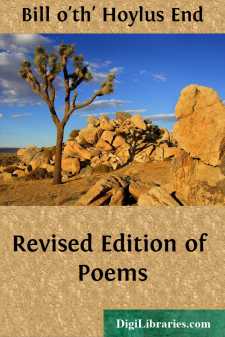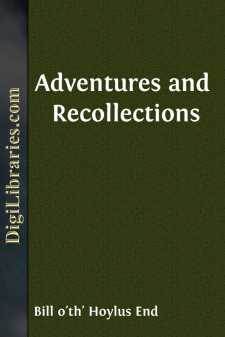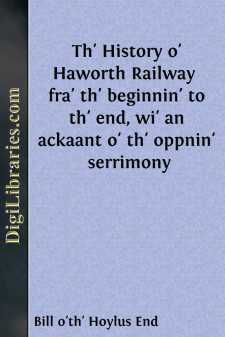Categories
- Antiques & Collectibles 13
- Architecture 36
- Art 48
- Bibles 22
- Biography & Autobiography 813
- Body, Mind & Spirit 138
- Business & Economics 28
- Children's Books 12
- Children's Fiction 9
- Computers 4
- Cooking 94
- Crafts & Hobbies 4
- Drama 346
- Education 46
- Family & Relationships 57
- Fiction 11821
- Games 19
- Gardening 17
- Health & Fitness 34
- History 1377
- House & Home 1
- Humor 147
- Juvenile Fiction 1873
- Juvenile Nonfiction 202
- Language Arts & Disciplines 88
- Law 16
- Literary Collections 686
- Literary Criticism 179
- Mathematics 13
- Medical 41
- Music 40
- Nature 179
- Non-Classifiable 1768
- Performing Arts 7
- Periodicals 1453
- Philosophy 64
- Photography 2
- Poetry 896
- Political Science 203
- Psychology 42
- Reference 154
- Religion 505
- Science 126
- Self-Help 81
- Social Science 81
- Sports & Recreation 34
- Study Aids 3
- Technology & Engineering 59
- Transportation 23
- Travel 463
- True Crime 29
Revised Edition of Poems
Description:
Excerpt
The Grand Old Man of Oakworth.
Come, hand me down that rustic harp,
From off that rugged wall,
For I must sing another song
To suit the Muse’s call,
For she is bent to sing a pœan,
On this eventful year,
In praise of the philanthropist
Whom all his friends hold dear—
The Grand Old Man of Oakworth,
Beyond his eightieth year!
No flattery! My honest Muse,
Nor yet be thou servile;
But tinkle up that harp again,
A moment to beguile.
Altho’ the bard be rude and rough,
Yet, he is ever proud
To do the mite that he can do,
And thus proclaim aloud—
The Grand Old Man of Oakworth,
Of whom we all are proud!
For base indeed were any bard
That ever sang on earth,
Did he not wish his neighbour well,
And praise his sterling worth.
Leave state affairs and office
To those of younger blood,
But I am with the patriot,
The noble, wise, and good—
The Grand Old Man of Oakworth,
The wise, the great, the good!
This worthy old philanthropist,
Whom all his neighbours greet;
Who has a smile for every one
Whom he may chance to meet—
Go to yon pleasant village,
On the margin of the moor,
And you will hear his praises sung
By all the aged poor—
The Grand Old Man of Oakworth,
A friend unto the poor!
Long may he live! and happy be,
The patriot and the sire;
And may some other harp give praise,
Whose notes will sound much higher.
His thirst for knowledge, worth, and lore—
His heart was ever there—
This worthy old philanthropist,
Beyond his eightieth year!—
The Grand Old Man of Oakworth,
Beyond his eightieth year.
Though murky are the days and short,
And man he finds but little sport,
These gloomy days, to cheer him;
Yet, if a Dobie should, perchance,
Come out before an audience,
’Tis worth our while to hear him.
Right pleased was I, dear sir, to hear
Your lecture on that subject dear,
So grand and superhuman;
For all the world doth pay regard
To Bobbie Burns, the Scottish bard,
The patriot and the ploughman.
Your words, indeed, were passing good,
On him who kenned and understood
The kirk and all its ranting;
Who “held the mirror” up, indeed,
To show the “muckle unco-guid”
Their double-dyéd canting.
You painted him sometimes in glee
While other times in poverty—
To gold without alliance;
Yet, after all he kept his pace,
And looked grim fortune in the face,
And set him at defiance.
But, alas! the picture, was it true?
Of Burns’ parents, poor and low—
So furrowed and so hoary—
It makes our very hearts to burn
To think that “man was made to mourn,”
And tell the sad, sad story.
You brought me back to days bygone,
When glad its banks I strolled upon,
The river Doon so bonnie;
The roofless kirk and yard so green,
Where many a tombstone may be seen,
With Tam and Souter Johnnie.
And when ye spake of yond bright star
That lingers in the lift afar,
Where Burns was never weary
Of gazing on the far-off sphere,
Where dwells his angel lassie dear—
His ain sweet Highland Mary!
But here my Muse its wings may lower;
Such flights are far beyond its power;
So I will stop the jingle.
Sir, I am much obliged to you,
And I am much indebted to
The Choir and Mr. Pringle.
What Profits Me.
What profits me tho’ I sud be
The lord o’ yonder castle gay;
Hev rooms in state to imitate
The princely splendour of the day
For what are all my carvéd doors,
My chandeliers or carpet floors,
No art could save me from the grave.
What profits me tho’ I sud be
Decked i’ costly costumes grand,
Like the Persian king o’ kings,
Wi’ diamond rings to deck my hand:
For what wor all my grand attire,
That fooils both envy and admire,
No gems could save me from the grave....




